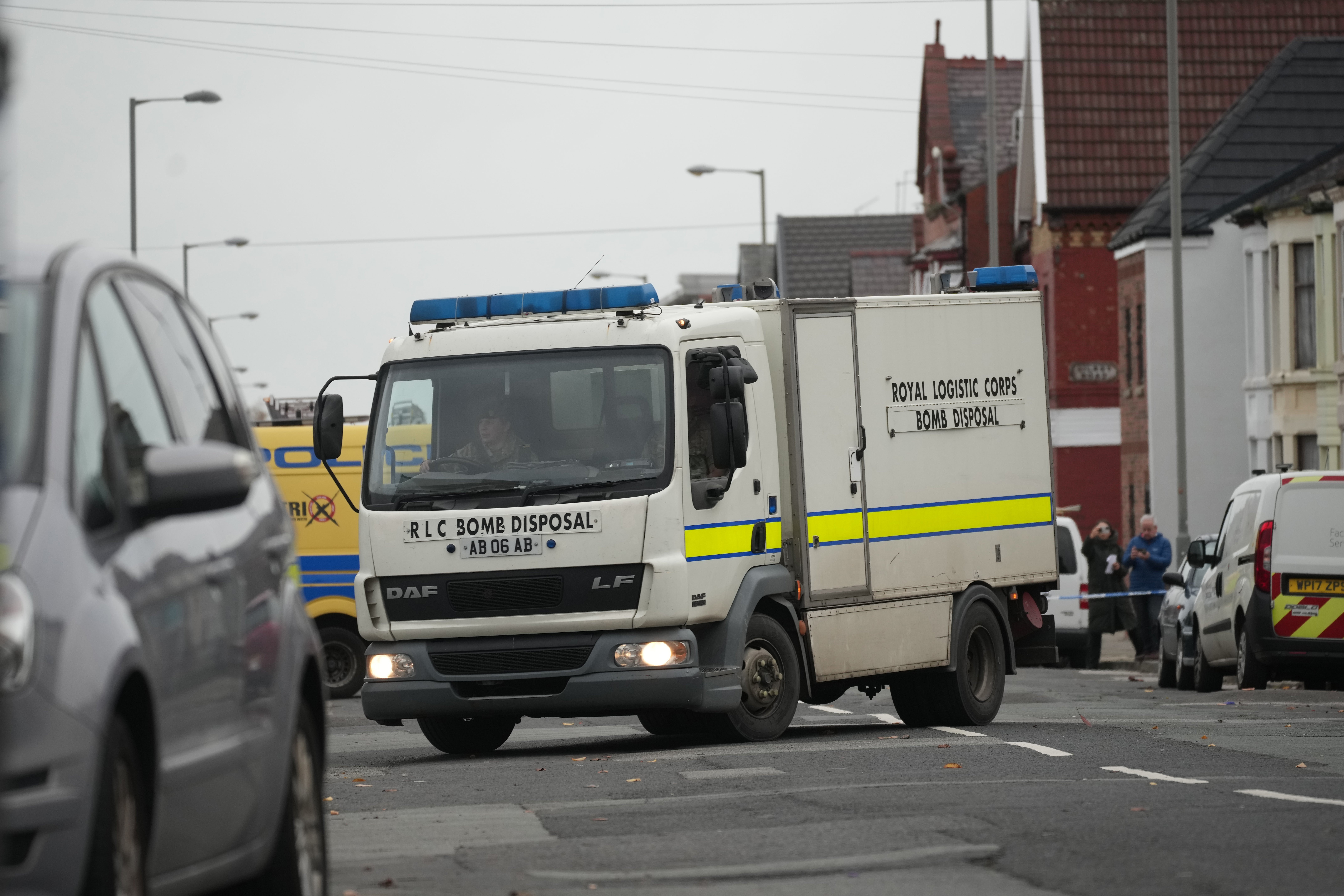Liverpool explosion: Bomb did not detonate properly and could have been ‘unintentionally’ set off
Bomb ‘would have caused significant injury or death’ if set off differently
The bomb that exploded outside Liverpool Women’s Hospital did not detonate properly and may have been set off “completely unintentionally”, police have said.
Emad al-Swealmeen, 32, killed only himself in the blast on Remembrance Sunday, which also set the taxi he was travelling in ablaze.
Assistant chief constable Russ Jackson, the head of Counter Terrorism Police North West said the device had ball bearings attached that would have acted as deadly shrapnel if it worked as intended.
“Had it detonated in different circumstances we believe it would have caused significant injury or death,” he added.
“We still do not know how or why the device exploded when it did, but we are not discounting it being completely unintentional, and it is a possibility that the movement of the vehicle or its stopping caused the ignition.”
Mr Jackson said the device was a different type to the one used in the 2017 Manchester Arena bombing, which killed 22 victims.
Investigators are working to understand the way the chemicals and components needed for al-Swealmeen’s bomb were obtained.
Mr Jackson said his purchases “spanned many months and al-Swealmeen has used many aliases”, adding: “We are confident however that in time we will get a full picture of what purchases were made and how, and if anyone else was involved or knew what al-Swealmeen was up to.”
Police have not yet confirmed the bomber’s motivation but believe al-Swealmeen acted alone at this stage. He converted to Christianity in 2015, but was also reported to have recently attended a mosque.
Officers spoke with his brother on Thursday and Mr Jackson said the interview had given them “an insight into his early years and an understanding of al-Swealmeen’s life and his recent state of mind which is an important line of investigation”.
Investigators previously confirmed that the bomber had received mental health treatment in the past, but did not give details.

The Independent understands al-Swealmeen was not previously known as a threat to MI5 or counter-terror police, although he had a conviction from 2015 for possessing a knife in public.
He is believed to have been planning an attack since at least April, and mainly built the bomb at a rented flat in the Sefton Park area of the city.
Al-Swealmeen caught a taxi from the Rutland Avenue area shortly before 11am on Remembrance Sunday and asked to be taken to the hospital, where the device partially detonated as the car pulled up at the main entrance.
His nationality has not been officially confirmed, but a relative traced by police said al-Swealmeen was born in Iraq.
The Home Office refused his asylum application in 2014, and he lost an appeal at the First-tier Tribunal of the Immigration and Asylum Chamber. An attempt to take the case further was turned down in 2017.
Al-Swealmeen, who changed his name to Enzo Almeni after arriving in the UK around seven years ago, told friends he was of Syrian origin but authorities were unconvinced.
Friends believe he may have lodged a fresh asylum claim after the first was exhausted, and by the time of the attack he was living in shared accommodation run by government contractor Serco.
The Home Office has refused to confirm al-Swealmeen’s immigration status, or whether it was considering an asylum application at the time of the bombing.
The explosion was the second incident to be declared a terror attack within a month in Britain, causing the national terror threat level to be raised from substantial to severe.



Bookmark popover
Removed from bookmarks